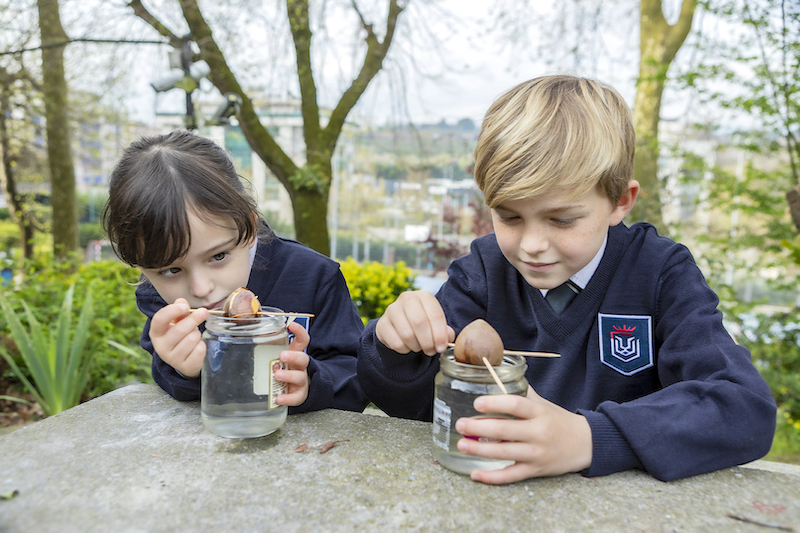Globeducate schools International STEAM Day
Posted on 9th Dec 2021 in School News
Globeducate schools across the world celebrated World Science Day and STEAM Day in November, bringing students from age 3 to 18 together as a global community to share ideas and experiences. Globeducate is one of the world's leading K12 education groups with 55+ premium bilingual and international schools, and online programmes, in nine countries.
Schools shared some of the fantastic ideas they had – from a Radium Rachel workshop and apps used to make predictions about conductors and insulators at Stonar Prep School in the UK, and O Castro British International School in Spain starting a STEAM Book Club, to debates about environmental issues and designing a waste classification robot with LEGO® Education equipment at Agora Sant Cugat International School, Spain, and tree frog dissections with senior science students in Blyth Academy Burlington, Canada.
Monica Fontán, Assistant Education Director of Globeducate, coordinated the group-wide STEAM event and said: “It was fantastic to see how teachers took advantage of the celebration to stimulate curiosity by planning lessons which not only consolidated scientific knowledge but also incorporated elements of STEAM learning. Classrooms were converted into laboratories, students into investigators, designers and problem-solvers. Students worked collaboratively, designed, created, tested and presented solutions to real-life problems.Teachers were most impressed with the feedback peers offered one another and the self-reflections made on how to make their own solutions even better.”
Children across all age groups had STEAM-related fun. At Cambridge House Community College in Valencia, Spain, Year 6 students played “The Circulation Game”, learning about the way blood circulates around the body, and Key Stage 3 students studied the International Space Station. Granada College, Spain, infants worked on spatial awareness and numbers with dominoes, as well as primary children learning to programme with LEGO (R) Education. There were children lighting up buildings with electrical circuits, making their own computer games, and experiments with soil, water and Bee-Bots.
At ICS Côte d´Azur, students worked on their writing and communication skills, recreating monsters and sharing videos about their creations and at Nobel Algarve British International School in Portugal, students cooked food on solar ovens as well as trying the Egg Drop Challenge and the Unsinkable Boat Challenge!
Physics and Chemistry teacher Rute Oliveira, at Nobel Algarve British International School, Portugal, said: “We promoted collaborative work and the children loved having the freedom and opportunity to create their own projects. The impact on student learning was essentially understanding that when we look for a solution to a problem we have to have a plan, we have to know how to manage time, learn collaborative strategies with the team, manage material, and that error is an essential part of learning!”
Nicola Jeken, Science Coordinator at Coruña British International School, Spain, said: “The children were delighted when their investigations had expected outcomes but fascinated when the outcome was different to what they had predicted. They were challenged to find out the “why” of what had happened in both cases. There was a genuine spark of curiosity throughout the whole day.”